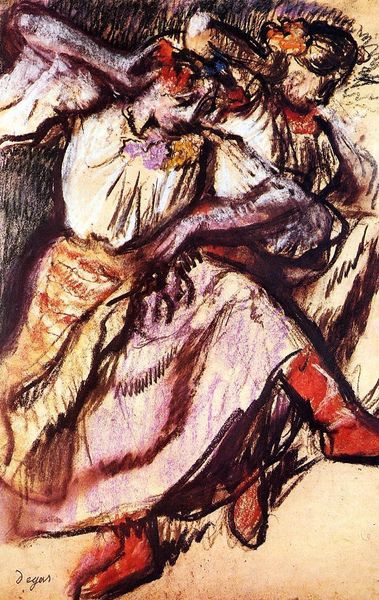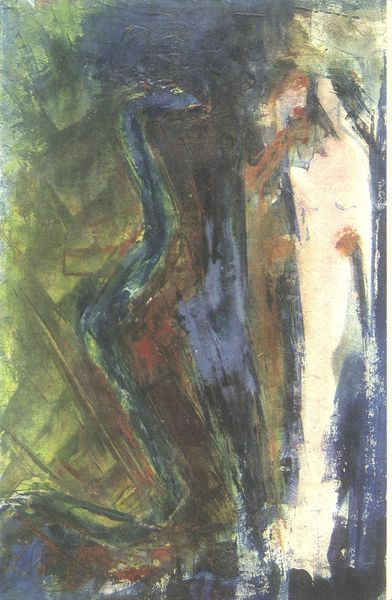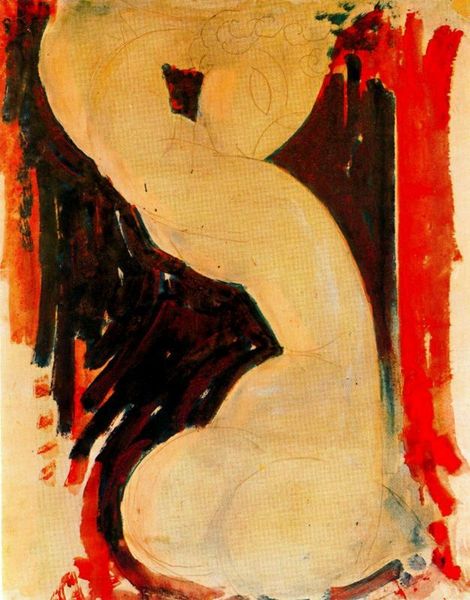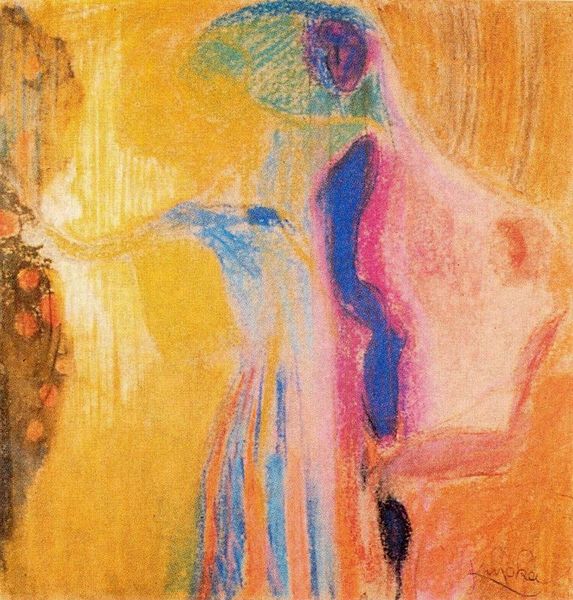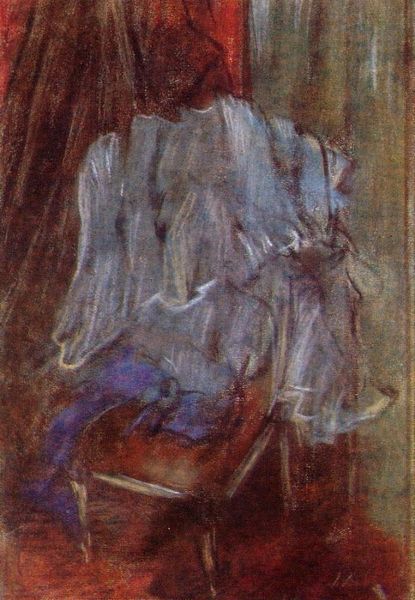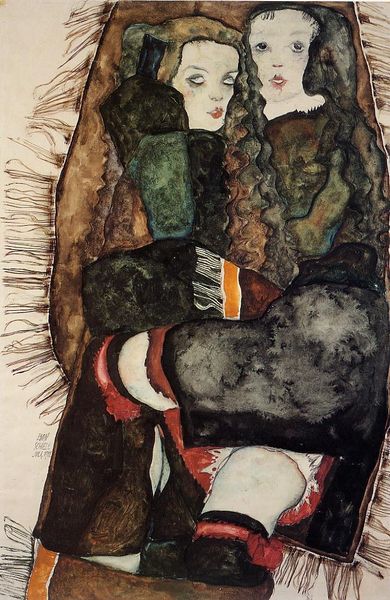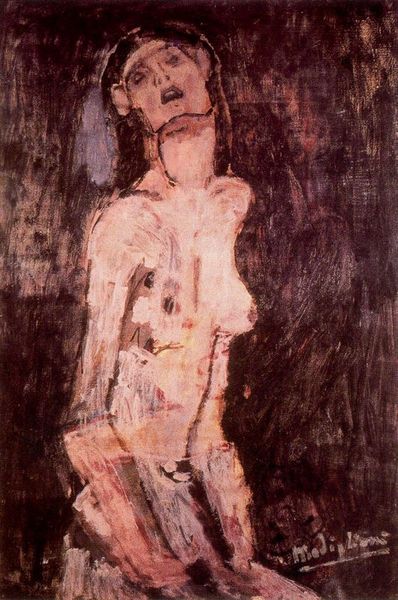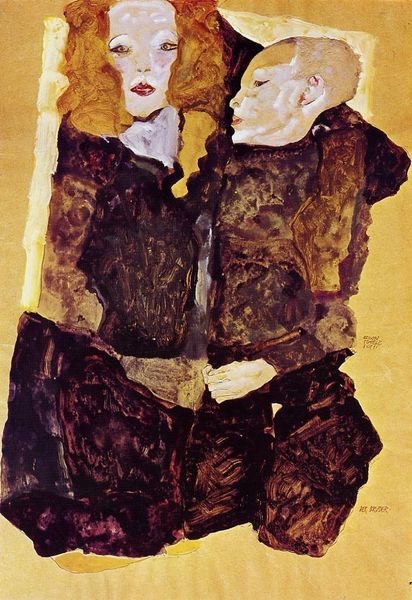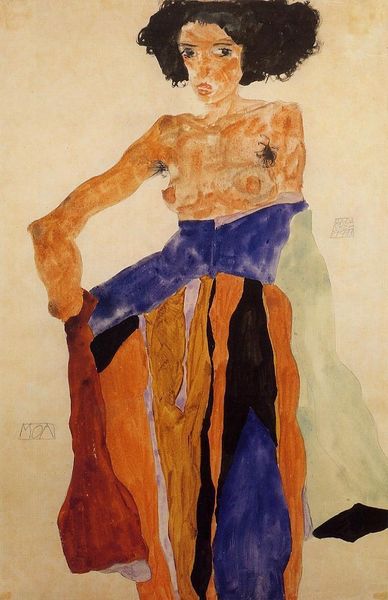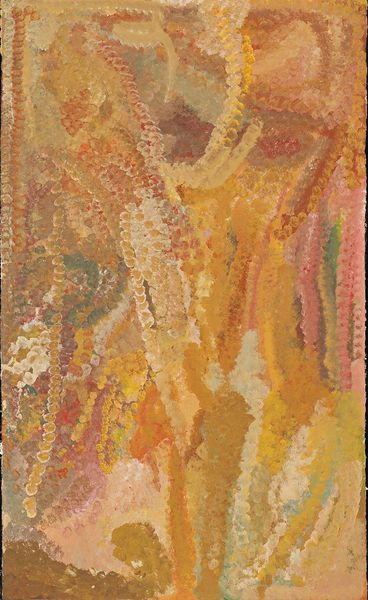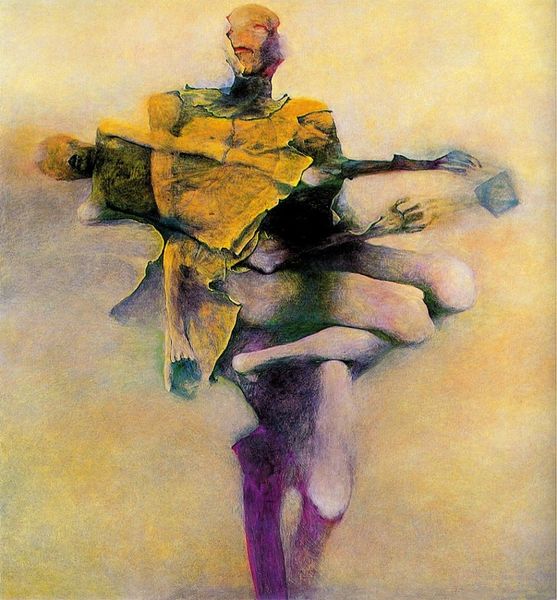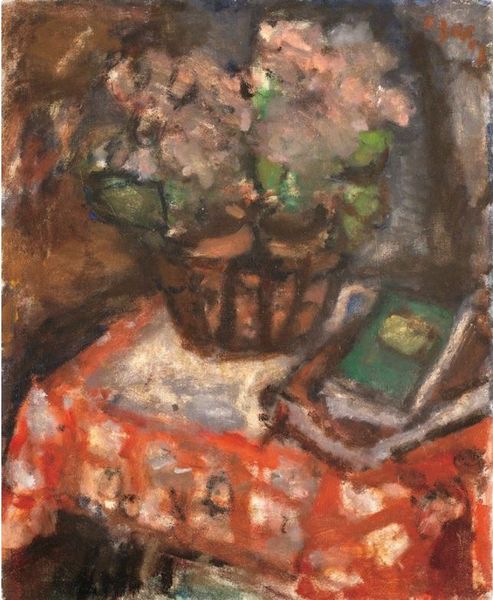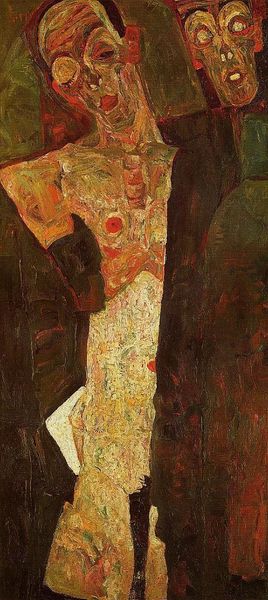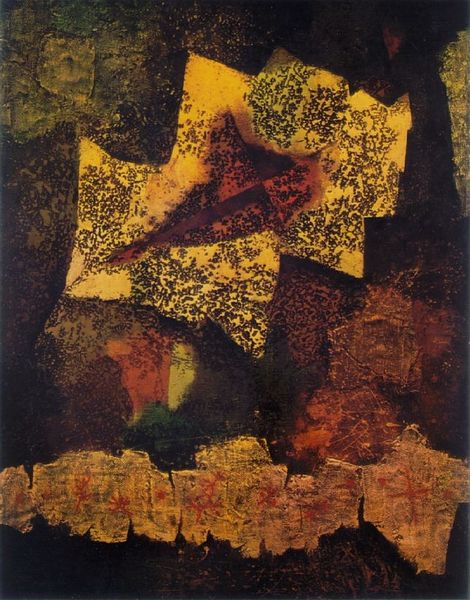
Copyright: Public domain
Editor: This is Paul Gauguin's "Bouquet of Flowers" from 1897. It's a mixed-media piece, combining watercolor and potentially oil on paper. There's a strange tension, almost a melancholy, in the contrast between the vibrant colors and the blurred, undefined forms. What do you see in this work, beyond the surface of a simple flower arrangement? Curator: I see Gauguin grappling with representation itself. Bouquets of flowers were often associated with femininity and domesticity. Here, though, Gauguin disrupts those easy associations. Consider the historical context: late 19th century, burgeoning anxieties surrounding colonialism, identity and cultural appropriation were at the fore, especially concerning Gauguin’s time in Tahiti. What societal structures do you think Gauguin is probing with the darker hues engulfing these lively flowers? Editor: It's interesting you bring up Tahiti. Could the flowers be symbolic of the exoticized "other," presented in a vase that signifies Western containment? Curator: Precisely. Gauguin manipulates traditional still life to speak to complex colonial dynamics. The "exotic" is tamed, presented for consumption, its vibrancy muted by shadows, confined within the European gaze, literally 'contained' by the vase. It evokes uncomfortable questions about the exploitation and appropriation inherent in the colonial project. Where do we see tension between the 'natural' vibrancy of Tahiti, and the constraints of Parisian presentation here? Editor: I see that now in the way the flowers seem to burst out of the top, resisting that containment, almost struggling against the dark background. So, even a seemingly simple bouquet can become a powerful commentary on cultural power dynamics. Curator: Exactly! Gauguin's choice of subject matter, coupled with his stylistic choices, creates a layered critique of the societal frameworks he occupied. Now, does considering this reframing shift how you interpret this floral painting? Editor: Absolutely. It makes me realize that nothing is ever just *what* it seems, especially in art. Curator: Indeed! And art’s greatest power resides in revealing hidden histories.
Comments
No comments
Be the first to comment and join the conversation on the ultimate creative platform.
